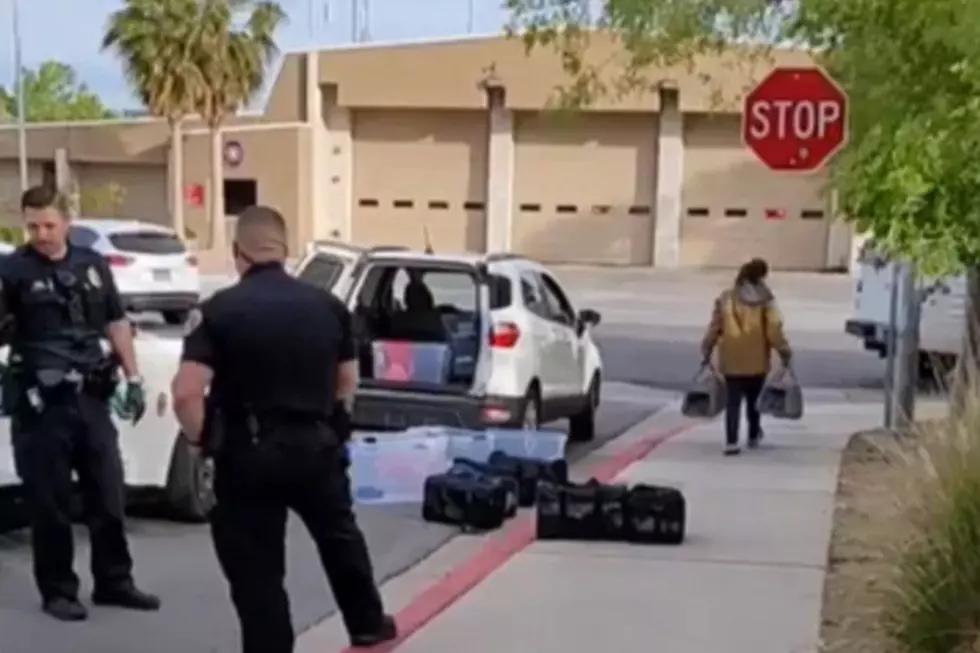
Lafayette Residents at Risk of Getting Scammed by Fake QR Codes, BBB Warns
LAFAYETTE, La. (KPEL News) - The Better Business Bureau is again asking Louisiana residents to be careful of fraudulent QR codes used by scammers to take their money.
In May, a mother and daughter reported being scammed by a fake QR code on parking meters in downtown Lafayette.

According to the women, when one of them parked downtown for an event at Parc Lafayette, they scanned a QR code on the parking meter to pay only to discover the next day they had a charge for almost $800 at Walmart.
Adding confusion to the problem for a lot of people is just how much QR code use has exploded in recent years. You can find them on flyers, in restaurants, digital stores, business cards, and more. But because they are free to make and easy to use, the potential for scammers to take advantage has also exploded.
The BBB is warning folks to be vigilant when using QR codes. Parking meters, they say, are a big source of the problem.
"Fraudulent QR codes are often placed on the back of parking meters, leading victims to assume they can pay for parking through the QR code if they do not have change," the BBB said. "Con artists can easily create a QR code for free online, which they then print on stickers and either cover up an actual QR code or place where it makes logical sense. After paying for the spot through the QR code, some victims return to find their vehicle has been towed or received a parking ticket for non-payment, multiplying the amount of money lost."
The BBB tracks scams online and publishes warnings for consumers in order to inform them what could be lurking out there. Often, however, that comes at the expense of someone learning the lesson the hard way. And, thousands of dollars later, resolutions can still be hard to come by.
One scam that impacted a Louisiana resident came through the use of a QR code and using cryptocurrency as payment.
"The rise of cryptocurrencies has altered traditional thinking about investments, and the confusion surrounding these transactions makes it a ripe ground for scammers to take their toll," says the BBB. "The trading of cryptocurrencies is conducted online, and the easiest way for both legitimate and fraudulent traders to direct investors to their digital wallets is through a QR code."
The BBB offers the following tips for avoiding such scams.
How to avoid QR scams
- Confirm the QR code before scanning. If you receive a QR code from a friend via text or a message on social media from a workmate, be sure to confirm with that person they meant to send you the code to verify they have not been hacked. Keep in mind what you know about the person messaging you. Are they active in cryptocurrency investments, or is this message a little out of character? How often do you talk to this person, and does it make sense they would come to you with this opportunity? Trust in your intuition and avoid scanning any QR code until you know they sent it on purpose.
- Do not open links from strangers. If you receive an unsolicited message from a stranger that includes a QR code, BBB strongly recommends against scanning it. If the message promises exciting gifts or investment opportunities under the condition you ‘act now,’ be even more cautious. Scammers use this type of language consistently and rely on their targets to make immediate decisions before verifying its authenticity.
- Be wary of short links. Suppose a shortened URL appears when hovering your camera over a QR code. In that case, there is no way of knowing where it will direct you once the link is followed. Ensure you are confident that the QR code is legitimate before following short links, as it may send you to a malicious website. Once on the website, look at the URL and verify the domain and subdomain make sense for the organization that supposedly operates it. Scammers often switch around the domain and subdomains for URLs or slightly misspell one word to make websites appear legitimate.
- Check for tampering. Some scammers attempt to mislead consumers by altering legitimate business ads or placing stickers on the QR code. Keep an eye out for signs of tampering and, if discovered, have the business check that the posted QR code is genuine. Most businesses permanently install scannable QR codes using laminate or placing it behind glass in their establishments. They will often include the business’s logo in the code, often in the middle.

For more information
Read BBB's data privacy and cyber security tips to learn more about protecting your information online.
If you’ve been the victim of a QR scam, report it at BBB.org/ScamTracker. Information provided may prevent another person from falling victim.



